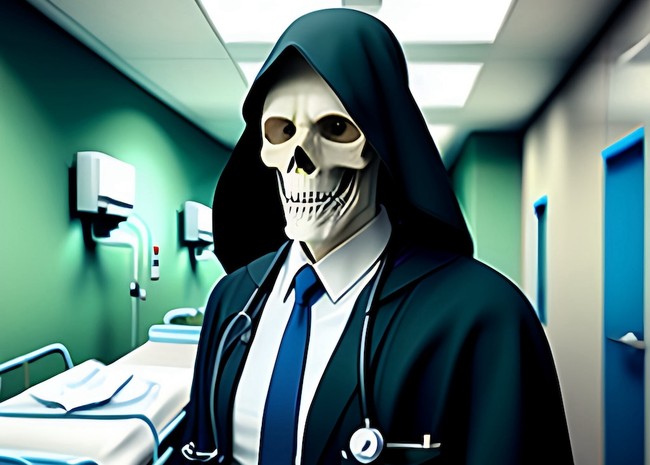


An American man in late-stage heart failure received a donor heart from a 38-year-old Canadian man with ALS killed earlier this year under that country's decade-old euthanasia law. It's the first-ever heart transplant from a Medical Assistance in Dying (MAID) donor.
"The case involved a 59-year-old man with rapidly worsening heart failure who wasn’t expected to survive more than a month," Canada's National Post reported, and "the time from retrieval to transplant was five hours and 28 minutes."
“While longer term data and data on additional cases will be required, this case suggests that safe cardiac transplantation can be performed after MAID,” the Canadian and American doctors involved wrote in the Journal of Heart and Lung Transplantation.
I'd bet next month's car payment that the heart went to an American recipient because nobody on Canada's donor wait-list lived long enough to get one. The average wait-time for a donor heart in the U.S. is roughly two to four months (although in some cases can be much longer). Canadians must wait over a year — 465 days on average — for a donor.
It's been my sad duty to write about MAID several times in the last three years, as the state euthanasia program slides down the slippery slope from "It's just for the nearly dead" to "Soylent Green is people."
"The donor had ALS and was going to soon die, anyway," some might say, and that's all true. But MAID — which went into force in 2016 strictly for those with a grievous and irremediable medical condition — is now offered for all kinds of things.
As previously reported here:
That last case was the most disturbing one. Kathrin Mentler was suicidally depressed, and checked herself into a Vancouver hospital for mental health treatment. There weren't any psychiatrists available (of course), so the clinician tried to talk her into state-assisted suicide.
More recent amendments to MAID expanded "eligibility" to pretty much anyone who wants it. The trick for some medical professionals is convincing people. "You could die so that others could live" is a compelling case for some of Canada's most vulnerable who are not suffering from a grievous and irremediable medical condition.
Slay News reported that "As the Canadian government continues to expand its euthanasia regime, the MAiD program is generating a surge in the organ donation supply chain."
According to federal data, “at least 155 people in Canada have donated their organs and tissues after receiving a doctor-administered lethal injection” since 2016.
Canada has already become a “world leader” in organ donation after euthanasia (ODE).
A Dutch study showed that of 286 ODE cases up to 2021, 136 were Canadian.
And LifeSiteNews reported last week that a "number of doctors are concerned that some Canadians receiving medical assisted death don’t actually meet Health Canada’s criteria for the procedure."
Personally, I'm torn on the issue of medical suicide. On the one hand, needless suffering is just that: needless. On the other, once the government gets involved, it's a quick and slippery slope from "needless" to "somebody else needs your liver more than you do."
My Dad died at just 41, waiting for a heart donation that never came. So I signed my donor card just as soon as I got my driver's license, and have kept it up to date ever since. What I've learned in recent years about organ harvesting practices in this country made me go to Donate Life Colorado’s website and change my status to "Take your stinking paws off me, you damn dirty ape!"
Well, I selected "Change my status to Non-Registered," but you can bet that in my heart, I was shouting like Charlton Heston.
I still believe in organ donation. But the medical profession essentially shattered its social trust, and I won't electronically sign my donor card again until they've earned it back.
But if I were Canadian? I wouldn't merely change my status to non-registered. I'd hire a hacker to eliminate any trace that I'd ever been a donor to begin with.
Recommended: Fuggidaboudit: Chuck Schumer’s Comedy of Errors
